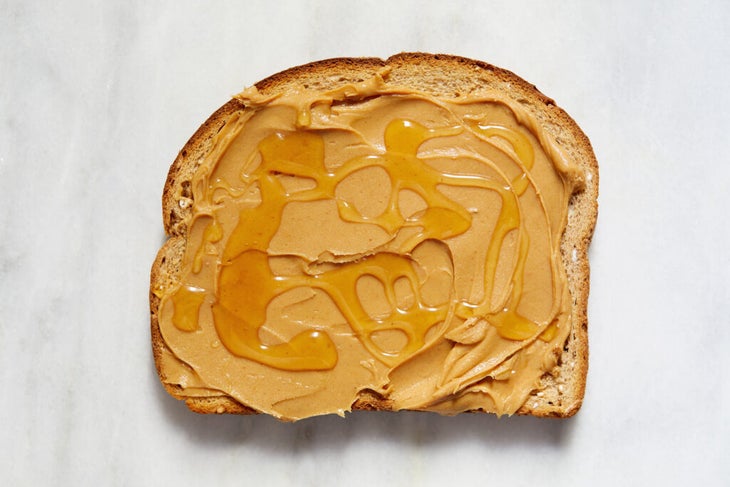New perk! Get after it with local recommendations just for you. Discover nearby events, routes out your door, and hidden gems when you sign up for the Local Running Drop.
Question: I run super early in the morning and only slug a cup of caffeinated coffee before my run. No food. Is that bad for my stomach?
Caffeine is a hot topic in the world of sports nutrition, and there has been so much research in the recent past about its benefits on exercise and performance. Caffeine is a natural stimulant and can be an effective performance enhancer when consumed by athletes in low to moderate dosages. For both strength and endurance athletes, it may increase muscular strength and power, increase aerobic endurance, increase jumping, sprinting and throwing performance, and enhance alertness. It can also spare glycogen sources, allowing your body to utilize fat as its main fuel source.
But, before we get into running with caffeine, what does drinking a cup of coffee on an empty stomach do? Let’s talk about that.
If you’re like me, that cup of coffee in the morning jumpstarts your day, in more ways than one. Research has shown that caffeine may stimulate your urge to poop by increasing contractions in your intestines and anal sphincter. These contractions make your digestive tract more active by pushing contents towards your rectum. Caffeine also raises the production of hormones cholecystokinin and gastrin, which have been linked to increased colon activity.
Okay, so we know that coffee may increase your likelihood to poop. Great. But does that mean it is harming your digestive tract at the same time?
RELATED: More Carbs Correlates With Less GI Distress in Runners
The Bitter Truth
Research shows that the bitterness of coffee may be the thing that stimulates the production of stomach acid. Many people believe that this increase in stomach acid can irritate your stomach and cause heartburn, ulcers, nausea, acid reflux, and indigestion. Some people believe that drinking coffee on an empty stomach can further exacerbate these problems since there is no food in the stomach to help prevent the acid from harming your stomach lining.
However, other research debunks these myths and has shown that the increase in stomach acid doesn’t actually appear to cause digestive issues for most people, regardless of whether you drink it on an empty stomach.
So what to do?
First, it’s important to pay extra attention to how your body responds to drinking coffee on an empty stomach. While there’s no strong correlation between coffee and digestive issues, that doesn’t mean that you may not experience these issues. Caffeine affects everyone differently. Some people may even benefit from adding milk to their coffee, as milk helps to increase the pH level, making it less acidic. If you experience stomach discomfort or digestion issues, try pairing your morning cup of joe with some food or a little milk, to see if that helps relieve some of your symptoms. Eating in the morning can be a challenge for some people, so I encourage you to find something that is simple and sounds good, like a piece of toast with nut butter or even last night’s leftover pasta.

And this brings me to the most important part: drinking only coffee and not eating before your run.
Should You Run Fasted?
This can be considered fasted running, which involves running on an empty stomach in a depleted state. I am not a fan of fasted running, and I am not afraid to say that loud and clear for all the world to know. Because many people prefer to run in the morning, many runners might be running fasted, even if by accident. This can be dangerous, as energy deficits and low energy availability can cause major health issues.
RELATED: Want to Get Fast? Stop Fasting
Many studies have found that even moderate depletion can lower performance in training. Not only that, but food restriction can be a slippery slope for our mental health and may lead to the development of other physical health issues down the line, such as disordered eating, increased likelihood of injury, or hormone imbalance. Caffeine can also suppress appetite, too, which is something athletes need to be aware of. It may indirectly lead to energy deficits if athletes are strictly relying on their hunger cues to fuel.
Remember: Food is fuel. It gives us the energy we need to do the things we love. That’s indisputable. Drinking coffee on an empty stomach and then going for a run may not be destroying your insides, but it may destroy your health and performance in the long term, from an energy availability standpoint.
Drinking coffee on an empty stomach and then going for a run may not be destroying your insides, but it may destroy your health and performance in the long term, from an energy availability standpoint.
Here’s what I recommend: If going on a morning run, pair your coffee with something for breakfast, even if that something is basic – a piece of toast, a small granola bar, a piece of fruit. If you enjoy drinking coffee with milk, you can add some of that, too, to reduce the acidity.
Pairing a cup of coffee with a carbohydrate-rich breakfast can be a great way to provide a person with all of the energy they need for a run. As with all things in life, if you enjoy coffee and it doesn’t produce any unwanted gastrointestinal distress, then it can be a great part of your morning routine. It may even increase your performance during your morning run.
Alex Borsuk Hasenohr, M.S., is sports nutritionist and professional trail runner for Dynafit. She is passionate about helping athletes reach their full potential through the use of practical nutrition, and she can be contacted through her website. Read more of the “Ask Alex Anything” column at Trail Runner.